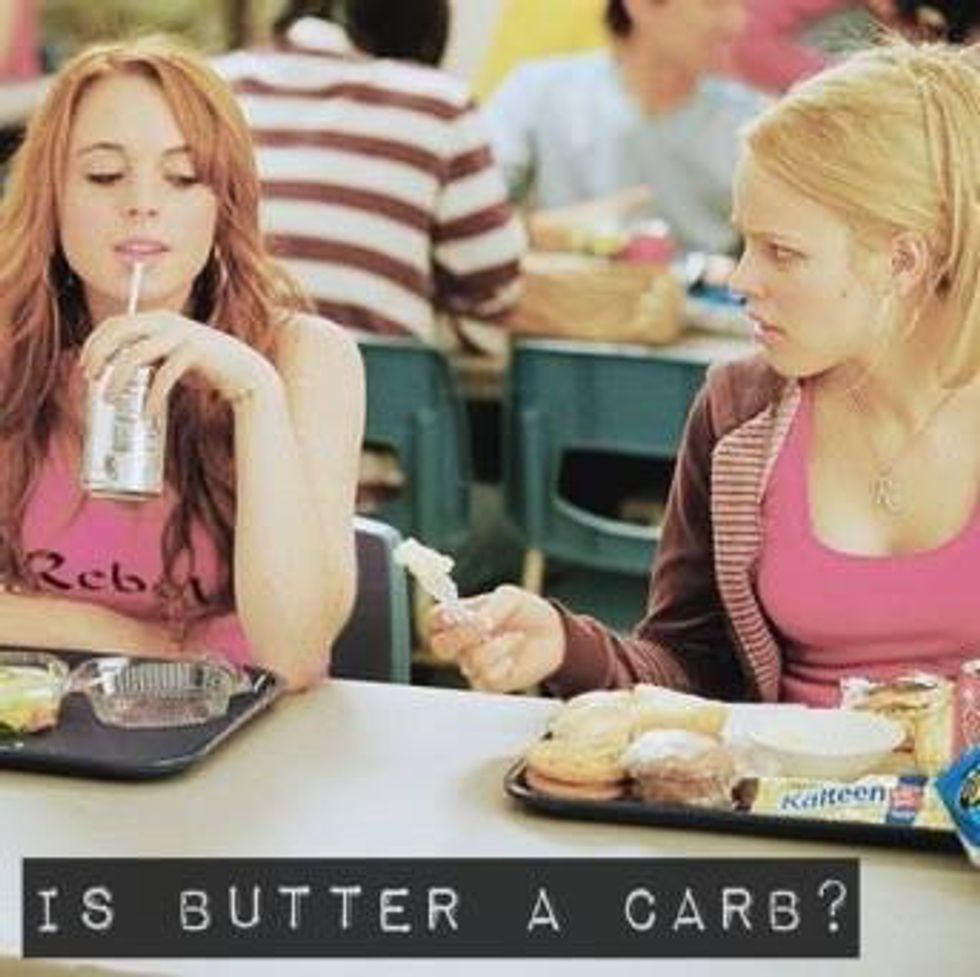I’d like to think that I’m not the only one who has ever felt ashamed at the dinner table. I know my mom didn’t mean to induce a self-conscious nausea in the pit of my stomach during dinner last week. She did indeed, however, when she shot me a sideways glance as I helped myself to a generous second serving of mashed potatoes. It would also be nice to believe that no one intended to inflict guilt upon me as another time I rose from my seat in the dining hall, preparing to carve my way through the bustle of the 6:30 p.m., only-dining-hall-on-campus madness, all to claim a cookie the size of my face. Realistically, my dining hall company probably didn’t invest much personal care into whether I got a cookie. However, I couldn’t help but feel slightly less innocent when the question of whether anyone would join me was followed by crickets. Finally, someone broke the silence. “I don’t deserve a cookie today.”
Did the rest of them look grateful that someone had silenced their temptation for sweets before it got the best of them, or was I just imagining that? Nevertheless, the remainder of my dining hall party groaned out a chorus of “sames” and aggressively nodded their heads in agreement that they would be hitting the gym directly afterwards.
Having a cookie after my dinner seemed innocuous enough when the thought had first entered my mind. By all means, I probably would’ve had two cookies if no one had been there to make me think twice. Even so, as I shuffled back to my seat with a warm, gooey, chocolate-y sugar concoction on my plate, the initial allure of the dessert morphed into a demonic image of a circular, golden-brown caloric killer. I shyly nibbled around the edges as my friends crossed their bouncing legs and stared down at glowing iPhones. Instead of enjoying my food, I felt more disgusting and bloated with each swallow. If they didn’t “deserve” dessert, why did I?
All of this got me wondering, what justifies “deserving” a certain food anyway? Is it a rewards program measured by the total number of squats you banged out in the gym earlier in the day? Is it according to the amount of calories you’ve already consumed prior to the knee-weakening point of you wanting to indulge in a certain dish? Are there grounds for a pat on the back once you have successfully resisted and a safe distance separates you from the temptation? When does one ever truly “deserve” to treat themselves, and what is to be gained when they choose not to?
Don’t get me wrong, I understand why many people choose to make health-conscious choices about what they eat. In no way do I mean to negate the lifestyle of healthy people. In fact, I commend those that possess such willpower. The term “diet," in my mind, means balancing my candy binges out with occasional salads and possibly a jog sometime during the day. To me, that is when I “deserve” to eat what I want… but even when I don’t “deserve” it, I still eat what I want regardless. However, explicitly using words like “deserve," “earn," "cheat," "sinful" etc. around food can be extremely detrimental to body image. Sure, most people aren’t aiming to shame others around the dinner table, but it’s natural to feel a bit uneasy when you see that people are rejecting a behavior that you are currently engaging in.
Although I shine a negative light on our linguistic relationship with food, I readily admit that there is reason to be concerned with this opinion. Obviously, you don’t want to gorge yourself in sugar, salt and carbs. You’re going to read the nutrition label before tossing boxes into your cart. You’re going to ration portions. You may even teeter your cautionary tactics on the dangerous line of obsession. According to the National Institute of Diabetes and Digestive and Kidney Diseases, more than two in three adults are considered to be overweight or obese, and one-third of children and adolescents aged 6-19 are considered to be one of the two. No one wants to be included in those statistics.
This is not even to mention that the pressure to be thin is everywhere — especially for impressionable young adults. All you have to do is open a magazine or walk into an Abercrombie and Fitch to get the idea that you are “fat," even if you are perfectly healthy. Pop culture makes it seem that these impossibly thin body types are more desirable. People obsess over reaching their goal weight, one that might mirror that of their favorite celebrity, and end up never feeling satisfied with themselves. This leads to a cycle of diets and body shaming that results in lowered confidence and eating disorders. Sometimes genetic makeup just doesn't allow for you to be that thin, and that's OK.

The verbal relationship we have with food, combined with external stimuli, can turn eating into public enemy number one. Instead of obsessing over whether what we are eating is the “right” choice, we should just trust our instinct and eat what feels right regardless of what the label reads. Looking good isn’t as satisfying if you don’t feel good. Don’t be afraid to treat yourself, whether that means nourishing your body with superfoods or saying yes to a scoop of ice cream atop your brownie to achieve your ultimate sweet tooth satisfaction. Disregard positive and negative terms attached to certain foods, just find what works for you. You just might end up much healthier, both physically and mentally, if you do so.

















